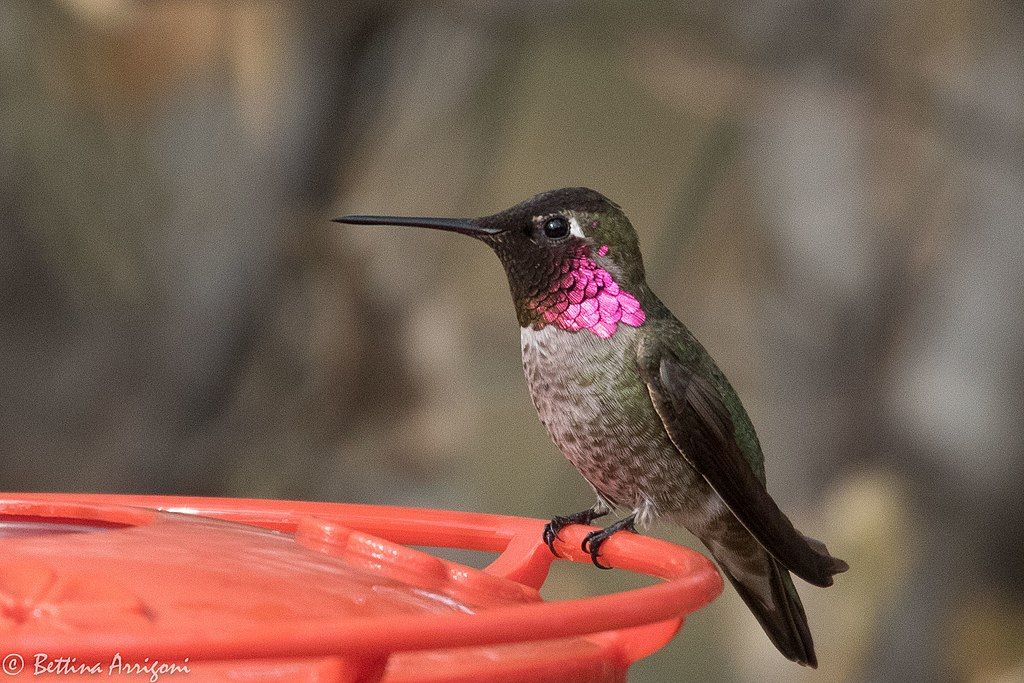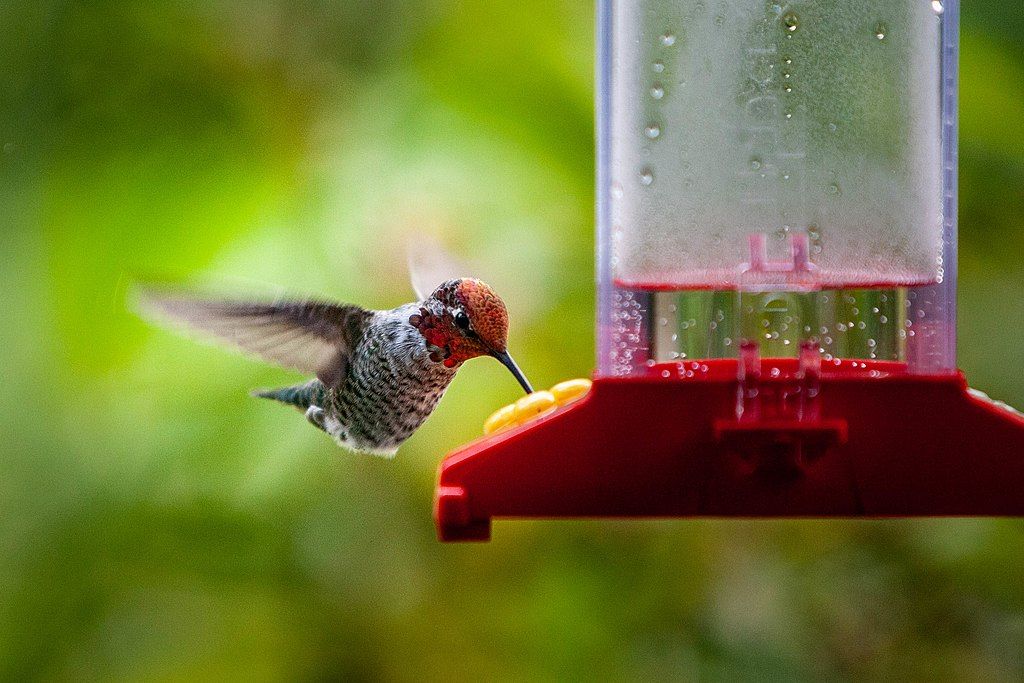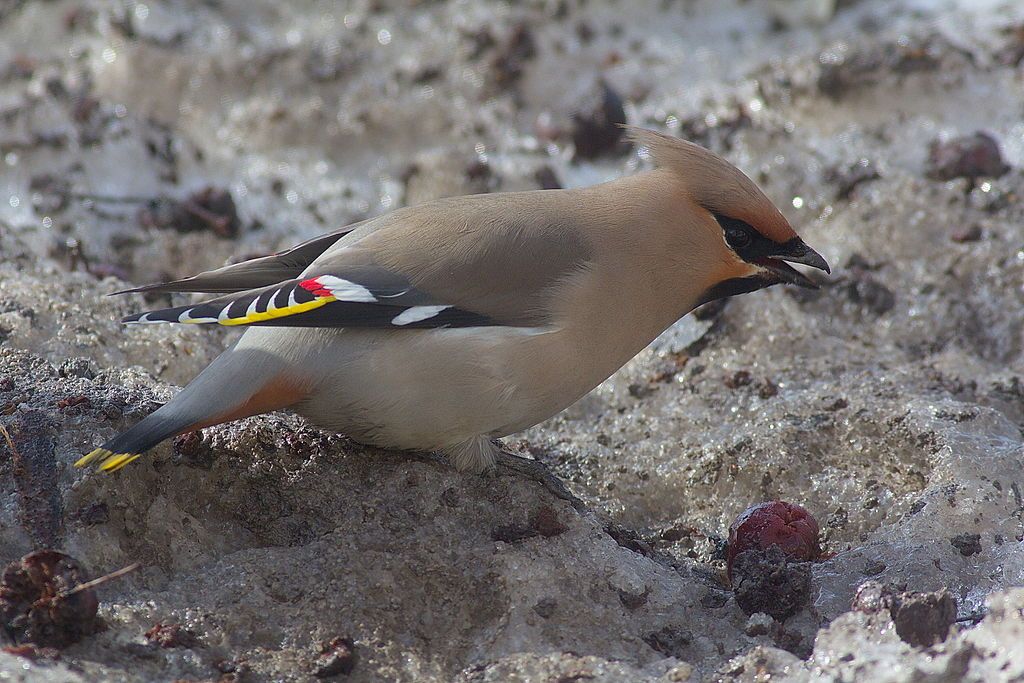
1 August 2023
Fermentation happens in the wild when sugars in fruit are exposed to yeast and bacteria on the skin. A crack in the skin starts the process, then animals consume it with sometimes hilarious results. Groundhogs and squirrels fall over. Waxwings get so loopy they cannot fly.
Nectar ferments, too, which prompted UC Berkeley biologist Robert Dudley to wonder how hummingbirds react to it. Do they like it or avoid it? Do hummingbirds get drunk?
Dudley’s study, published this June in Royal Society Open Science, concludes that hummingbirds indeed drink fermented sugar-water but they drink responsibly. Hummingbirds know how to stay sober.

Dudley tasked several undergraduate students with experimenting on the hummers visiting the feeder outside his office window to find out whether alcohol in sugar water was a turn-off or a turn-on. All three of the test subjects were male Anna’s hummingbirds (Calypte anna), year-round residents of the Bay Area.
They found that hummingbirds happily sip from sugar water with up to 1% alcohol by volume, finding it just as attractive as plain sugar water, but they sip only half as much when the sugar water contains 2% alcohol. …
“They burn the alcohol and metabolize it so quickly. Likewise with the sugars. So they’re probably not seeing any real effect. They’re not getting drunk,” he added.
— UC Berkeley press release, Hummingbirds drink alcohol more often than you think
Hummingbirds regulate their alcoholic intake. This stupefied Bohemian waxwing, reeling from too much fermented fruit, needs to have a conversation with them.
p.s. Want to learn more about hummingbirds and see them being banded and in the hand? Come to Hummingbird Day on Saturday 19 August 2023, 9a-noon at
Powdermill Nature Reserve
1795 Route 381
Rector, PA 15677
Click here for event information and free registration. I’ll be there. More news later.
(photos from Wikimedia Commons; click on the captions to see the originals)
